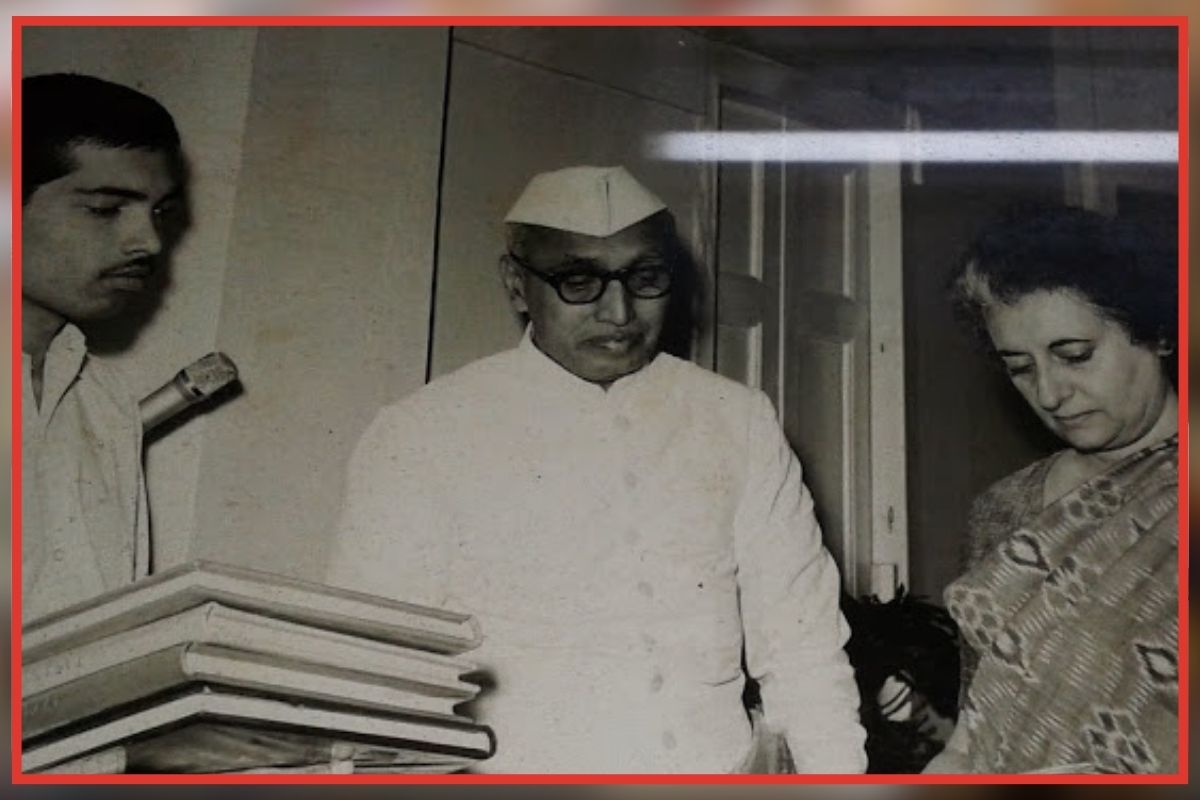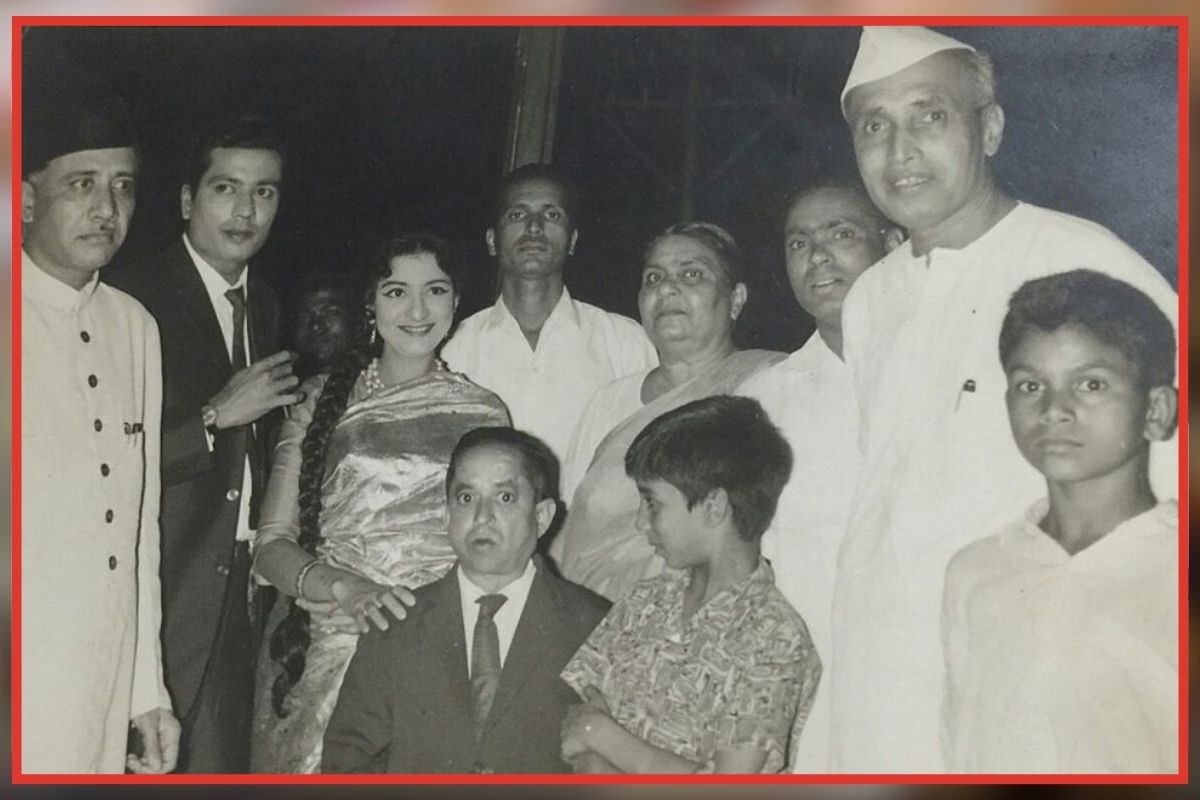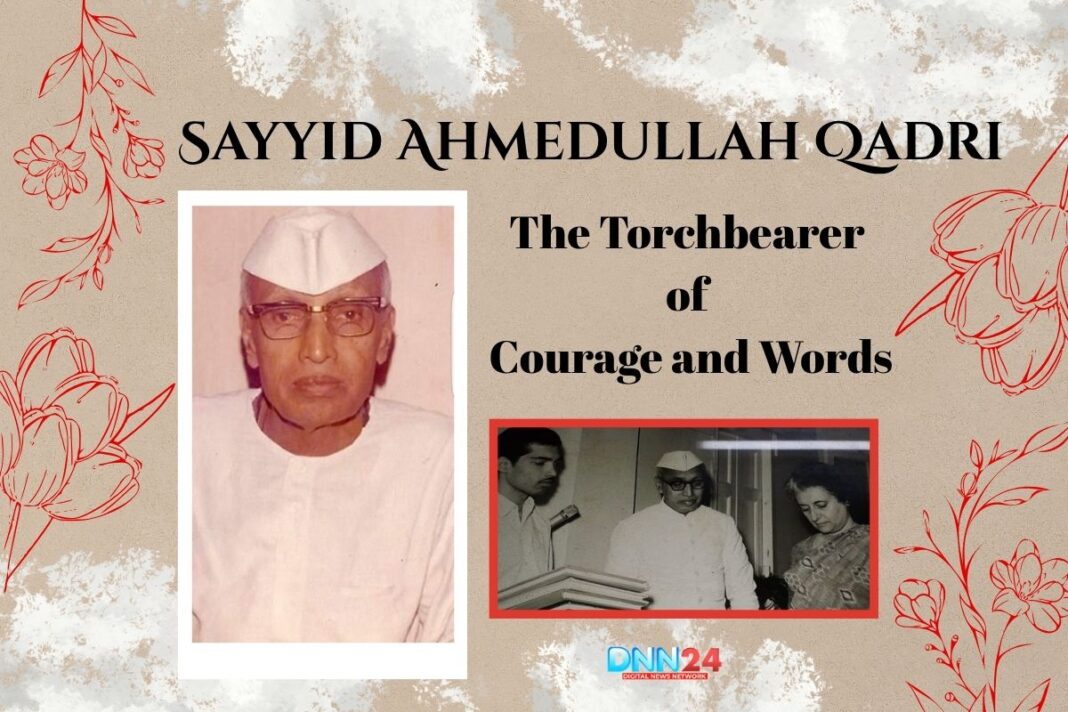In the bustling bylanes of Hyderabad, 1909 saw the birth of a boy named Sayyid Ahmedullah Qadri who would one day redefine what it means to be a writer, a patriot, and a healer of divided souls. Sayyid Ahmedullah Qadri was born in the family of the great scholar and writer Sayyid Shamsullah Qadri, and words, books, and the rich culture of scholarly families colored his childhood. He did not grow up coddled into comfort, like most privileged children, and young Ahmedullah watched his father slave over manuscripts. Work nights mending the seams of forgotten Deccani history with stitches.
Little Ahmedullah would watch the oil lamp, flickering in his father’s weary face, without his father suspecting that he was doing so–a lesson to him at an early age of the virtue of silent endurance. The first heartbreak was a worn-out copy of an Urdu magazine that his father had given him, and that he read under his blanket by the moonlight, promising himself that he would one day write stories that would heal bruised hearts and wake sleeping souls.
Sayyid Ahmedullah Qadri: The Journalist Who Risked Everything, the First Thunder
Ahmedullah was young, and the confusion of pre-independence India came in his way. It was not fame or applause that he was in search of by his twenties, but rather, he was searching for integrity in a world divided by war and suspicion. In 1946, as Hyderabad simmered with uncertainty, Qadri became the state’s first journalist to champion the “One Nation Theory publicly”—audaciously calling for unity across religion and region in the Urdu daily, Saltanat. Talking in this way was a dangerous thing in those days; his friends begged him to keep still, but his pen could not be quieted; it would not sleep, said Ahmedullah.

There is one minor episode that whispers of how, on one occasion, one evening, Ahmedullah received a threatening phone call and found a crumpled note at his door later with the message to stop. He shut himself in overnight—not because he was afraid, but because he wanted to write until morning, and the tears ran down the ink on his pages. This was his secret ceremony: the fear was transformed to ink, the suspicion to poetry.
Sayyid Ahmedullah Qadri: Battles, Defeats and a Name that was gained by Battle
The road to greatness is never strewn with roses, and Qadri had his share of both the public and the personal tribulations. He gained both supporters and opponents through his unending efforts in the movement to establish a united India. The world only got to see his smile in the photographs; not many people got to see his times of desperation when the community was in riot in Hyderabad, or the times when he was lonely in political exile. He was even ostracised sometimes, even by his party, due to his stubborn idealism.
His close associates remember an incident when he was thrown out of his editorial desk, and instead of feeling depressed, he just began to publish at his dining table. Qadri broke his heart through the mighty works such as Tanqid-i-Qamus-ul-Mashahir and therefore became known as Lisan-ul-Mulk–The Voice of the Nation. He used to walk home through the rain on days when the opposition was heavy, but he would stop under the same banyan tree and say to himself, “Words never sink”.
Sayyid Ahmedullah Qadri- Friend to the Forgotten: The Unheard Stories
The best stories that Ahmedullah wrote were usually stories that he wrote when no one was listening; stories of kindness, guidance and unacknowledged friendship. There is an obscure incident of a feeble little orphan boy, whom Ahmedullah had chanced to pass one day, selling newspapers at a corner. Qadri did not give him coins but instead invited him home, had a meal, and gave him his fountain pen, saying to the child, “Never allow your voice to go unheard.” This boy himself was to be a well-known journalist.

Qadri also used to pay the fees of students with poor backgrounds in secret and fought his financial problems by pawning his books. Such episodes were never publicised because he thought the best kind of charity is when it is performed under the shade of humility. His texts are glistening with empathy, not as a duty but out of experience and passion for those who have been left behind.
Lit Fire in Darkest Hour: The Golden Pen
Sayyid Ahmedullah Qadri’s writing was never just about art—it was salvation, protest, and vision spun together. The tapestry of Indian resilience was woven using works such as Mahmud e Osman, Memoirs of Chand Bibi, Paayam e Gandhi and Hyderabad Nama. His house was usually a war-room of manuscripts; on one stormy night, his family remembers how, by the light of candles, he dictated poetry until the early hours of the morning.
He did not flinch from meeting controversy by portraying the pain of division and the hope of reconciliation. Lal Bahadur Shastri, in his memory, dedicated the poignant 62-stanza song, Bahadur Nama; his Paayam-e-Gandhi had the Gandhian message of peace. To Qadri, every book was a lantern that guided the way through the bog of confusion- a legacy to the future generations of men and women who believed in the might of the pen despite the wounds left by the bullets.
Legacy of Hope: forever dream
Recognition came late to Sayyid Ahmedullah Qadri, sometimes never, but when the Padma Shri was pinned on his chest in 1966, it was more than a medal–it was a teaching to the generations to come that bravery is eternal, though cruelty is not. His legacy is in the heart of united India and not in the awards and titles. He was President of the Hyderabad Journalist Association and the Lutfuddaulah Oriental Research Institute. He guided thousands of young aspiring dreamers in the belief that literature is a revolution made in tenderness and steel. Even his opponents liked him due to his integrity and what others termed as his incurable optimism.
Even his handwritten letters contain a lot of hope, and to date, they can be found in the libraries of Hyderabad. Qadri was not leading a life of triumphs but was a story of which even the failure was a beacon of glory, teaching us that the most powerful revolutions are most often not made by the bang of a gun but by the voice of a poem or an outstretched hand in quest of assistance.
Also Read: Dil Shahjahanpuri: The Poet Who Turned Pain into Poetry
You can connect with DNN24 on Facebook, Twitter, and Instagram and subscribe to our YouTube channel.



